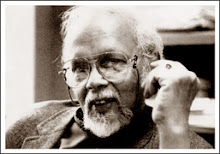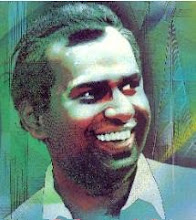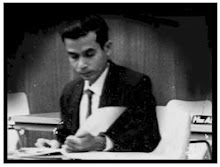Source: Daily Mirror
Date: 03/05/2010
‘Colombo Colombo: The story of your coffin’ is a tragi-comic musical play written and directed by Indika Ferdinando. First staged in August last year, the play has since been critically acclaimed as a fresh and exciting theatre experience that sets the benchmark for contemporary Sri Lankan theatre.
The play comprises a dynamic cast of young actors from the Sinhala theatre including Saumya Liyanage and Jagath Chamila and the lead role is played by Anasuya Subasinghe, who had gained her degree in Theatre Studies in New Zealand. The lighting for Colombo Colombo was designed by Sri Lanka’s foremost lighting artist Thushan Dias; the lyrics for the songs written by Piyal Kariyawasam, a recipient of state literary awards, and the music composed by Theja Rodrigo who has also received many awards for his music composition in the theatre.
In February this year, ‘Colombo Colombo’ was staged at the South Asian Women’s Theatre Festival held in New Delhi and Mubai, Daily Mirror online caught up with Indika Ferdinando on his return from India for an exclusive interview about the play.
What is the South Asian Women’s Theatre Festival?
It’s an event organised by the Indian Council for Cultural Relations in collaboration with the National School of Drama in New Delhi and the Jamia Millia Islamia University. The idea of organising this event had risen from a conference on Women of South Asia that was held last year. The festival focuses exclusively on women’s issues as well as women theatre artists. Eight theatre groups from Afghanistan, Nepal, Bhutan, Bangladesh, Pakistan, Myanmar and Sri Lanka along with six theatre groups from different parts of India performed at the festival. As an extension of the main event in New Delhi, mini festivals were held in Kolkata and Mumbai.
How was Colombo Colombo, a Sinhala play that discusses local issues, received in India?
Although the play was initially written and performed in Sinhala, the most crucial dialogues were translated into English for the India shows. In addition, I had a scene-by-scene synopsis projected onto screens on either side of the stage to help the audience. I believe that the issues discussed in the play are more or less relevant to all South Asian nations, having said that, my concern was the duration of the play. Would Colombo Colombo have the capacity to sustain the attention of a foreign audience for two hours? But what we learnt from the audience itself during discussions after the shows, was that in spite of the language barrier, they were able to feel the intensity of the situations and the dynamic and expressive style of performance combined with the musical component kept them engaged from start to end.
I must add, that what we underline as ‘rasa’ in the language of the performing arts, is a complex concept, referring to the aesthetic experience that the performance is meant to generate in the spectator. This does not refer to decorative beauty, but to truth and depth which in its best form can transcend the language barrier and reach out to any audience as an aesthetic experience. And in my theatre practice, I believe that it’s my responsibility to offer an exciting and aesthetically engaging theatre experience to the audience. In short, for me, it’s about finding and creating magic in theatre.
What challenges did you face in the translation process?
I wanted the English translation to retain the rhythm and playful style of the original Sinhala dialogues. It had to flow with the overall identity of the play and enable the switch between the two languages to happen seamlessly.
Why do you describe Colombo Colombo as an experimental piece?
The play does not conform to an Aristotelian structure. In other words it challenges the linear storyline with a single climactic ending that we are often familiar with, and replaces it with an episodic structure with four independent scenes. However, these scenes are linked together through thematic elements as well as the appearances of several characters and recurrent conditions that are common to all the events. There is also an effort to utilise multiple skills of the performer. I did not use recorded music or an orchestra. The instruments played throughout the play were eight guitars, and the players were the actors themselves. In addition to being instruments, the guitars were also used as substitutes for props and people.
Does the play carry a feminist theme?
‘Colombo Colombo attempts to look at the existing social and political systems and their power to determine the nature of human relationships. The influences of the socio-political context that we live in have the ability to transform the values and beliefs of people and their relationships in a matter of minutes. Yet another segment of the population chooses to remain indifferent to these conditions for the fear of having to change the lives that they’ve grown accustomed to. Having said that there is definitely a focus on the woman in Colombo Colombo. Central to all four episodes in the play is a young woman. Her name is Vyanga. But in each episode she is a different person. The difficulties faced by all these Vyangas draw attention to the impending dangers that not only threaten the existence of women, but also pursue them even after death. However, the perils of living in a society such as ours and the fight for survival is not merely a woman’s plight. I feel that this tragic condition is common to every individual in this country. Take Ibsen’s Doll’s House for example. It’s often perceived as a feminist play and the main character is a woman (Nora). But the tragedy of the play is shared by both Nora and her husband Helmer. This tragedy that I talk of is not limited to the tragic ending but is present throughout the lives of these characters. Similarly, Colombo Colombo highlights the perils of being a woman in this society while underpinning the tragedy that’s present throughout the lives of both men and women.
Tell us about the festival and the theatre culture you experienced on the tour?
India’s has a sophisticated and unique theatre tradition that has evolved over the years through numerous traditional forms combined with local flavours and the influences of colonialism, urbanisation and globalisation. Not only do the resources made available in terms of state support, funding, education and research play a huge role in sustaining the theatre arts, but there also appears to be an awareness about the challenges posed by the media boom and the economy. The Bharath Rang Mahotsav is an annual theatre festival organised by the National School of Drama in New Delhi. This year the festival presented over eighty performances by both Indian and international theatre artists. As a researcher and a spectator who was present at the Festival, I noticed that Indian theatre artists boldly experiment with diverse styles that range from traditional forms that are unique to the local culture to more contemporary forms and styles that are influenced by western traditions.
It appears that, all over India, a rich and varied theatre is being created by artists with a unique personal vision. In spite of owning similarly rich artistic traditions, it is this urge to experiment with different styles and forms of theatre that I find lacking among theatre practitioners in Sri Lanka. Well publicised theatre festivals that feature both local and foreign productions not only offer a wide range of theatre experiences for the Indian audiences, but also help the number of theatre enthusiasts increase each year. It is worth mentioning, that at the Bharath Rang Mahotsav, one could expect a full house at a 9.30 pm performance in spite of it being the dead of winter in New Delhi. This enthusiasm towards theatre was also evident at the South Asian Women’s Theatre Festival. In both New Delhi and Mumbai organisers ensured that no compromises had to be made in terms of the quality of the play. Therefore, my team and I were provided with the best of facilities in order to help make the performance a success. We also received a lot of support from the Indian High Commission, here in Colombo, during the tour.
What next in terms of local and international performances?
We’re scheduled to perform Colombo Colombo on June 5 and 6 at the Lionel Wendt and at at several universities within the next few months. Meanwhile, we have also received an invitation to perform at the Kathmandu International Theatre Festival to be held in Nepal in November this year.
- Indika Ferdinando, recipient of several state awards for best playwrite and director, works as a lecturer at the University of Visual and Performing Arts in Colombo, and had conceived the play as an experimental piece which is an extension of his scholastic research. (KA)



































artists should act this morality in real life too otherwise this tye of acting will remain an acting won't it?
ReplyDeletewhen they commit social crimes betraying wo/men and having fun with them in their real life the whole purpose of their superb acting will be faded away.
who gave such people to stand for the justice of the society?